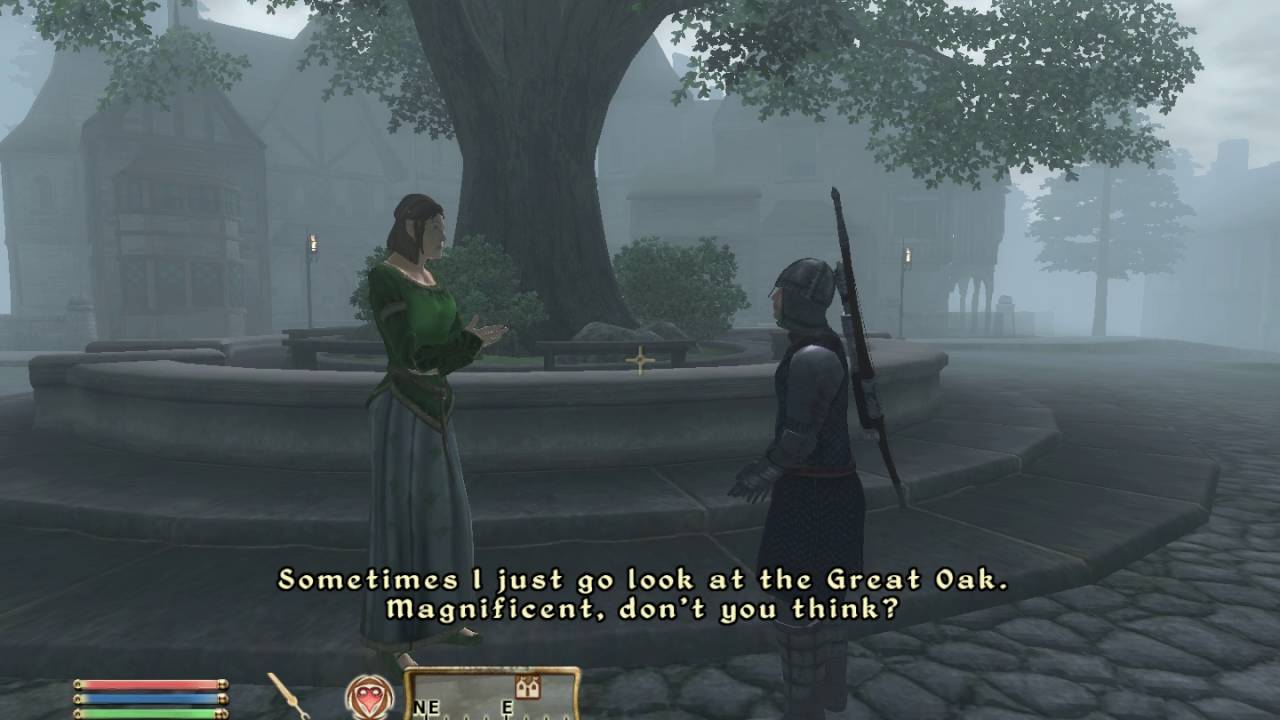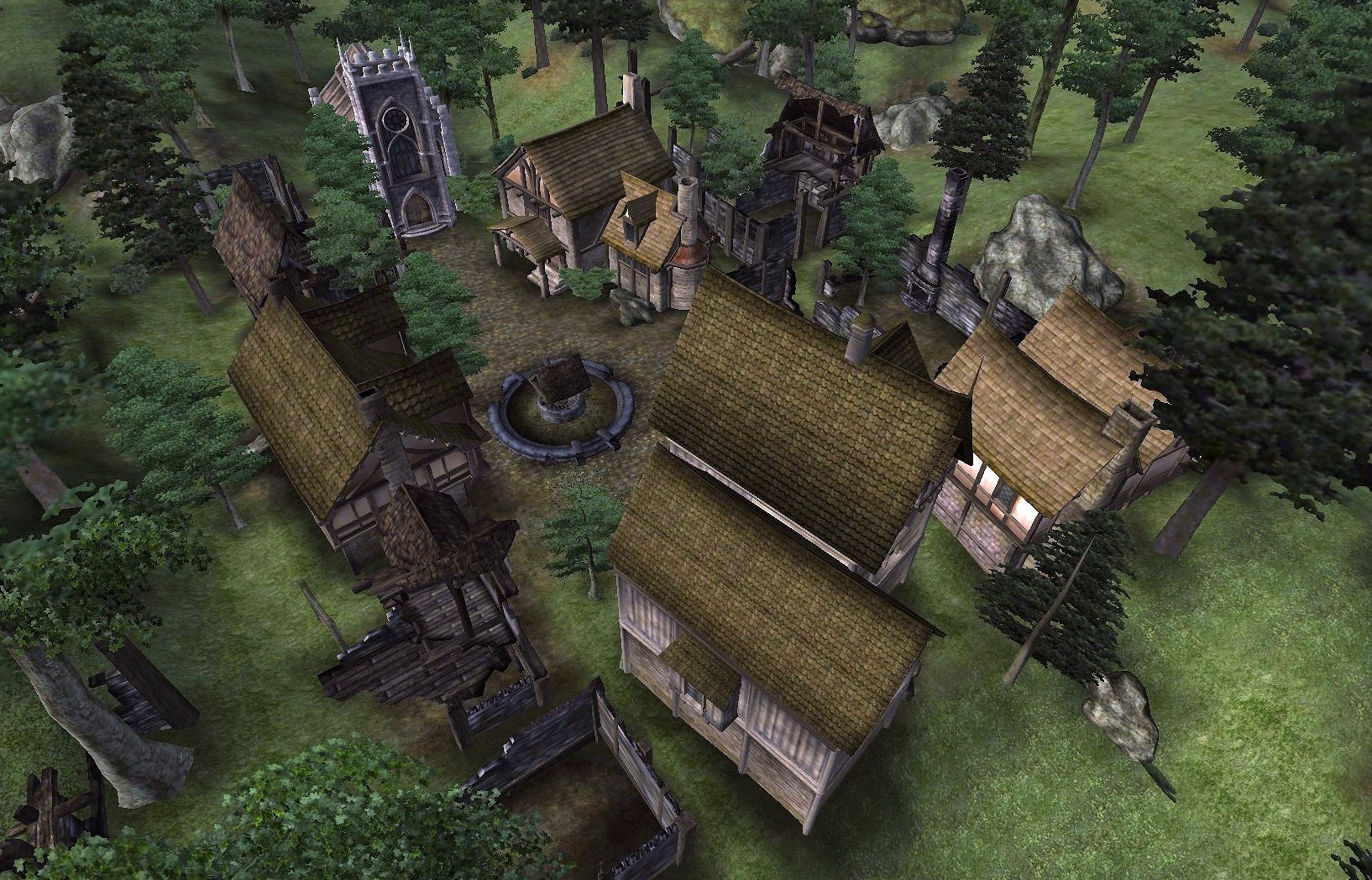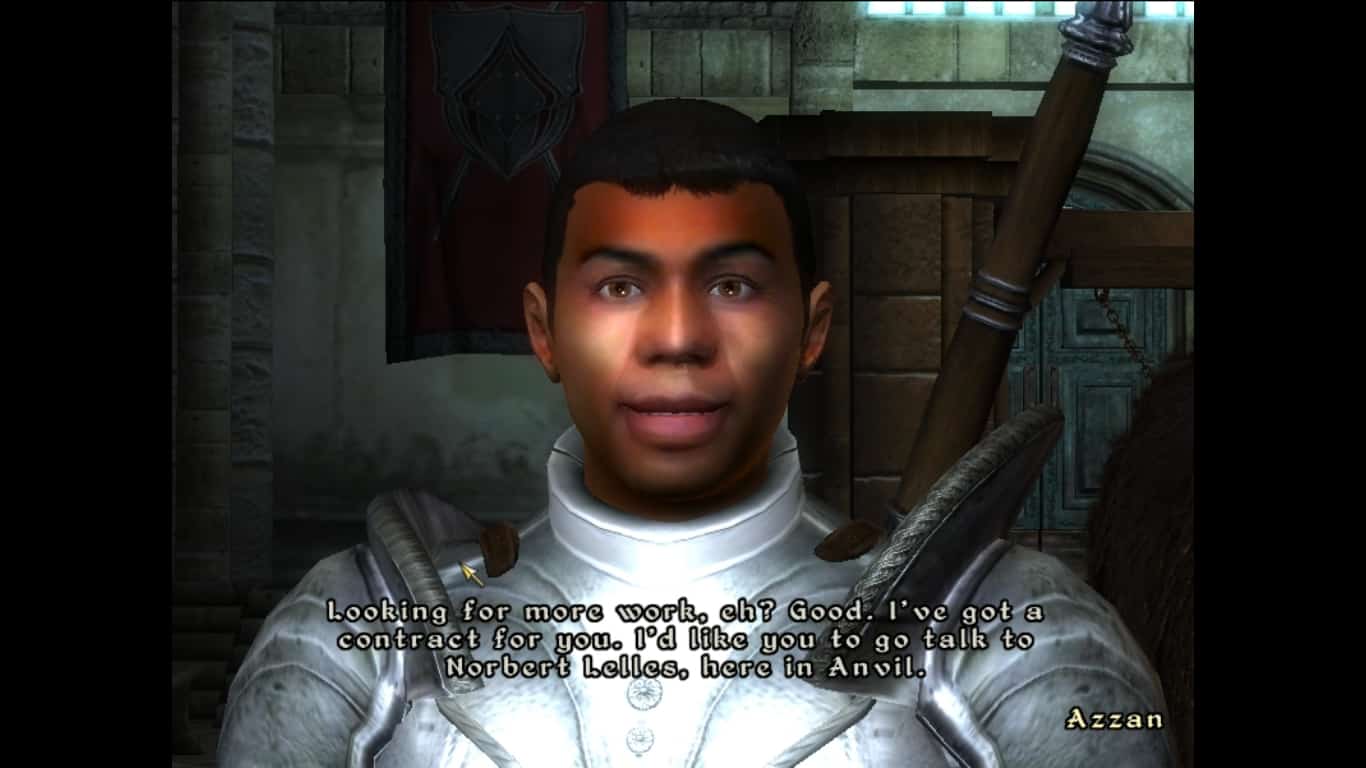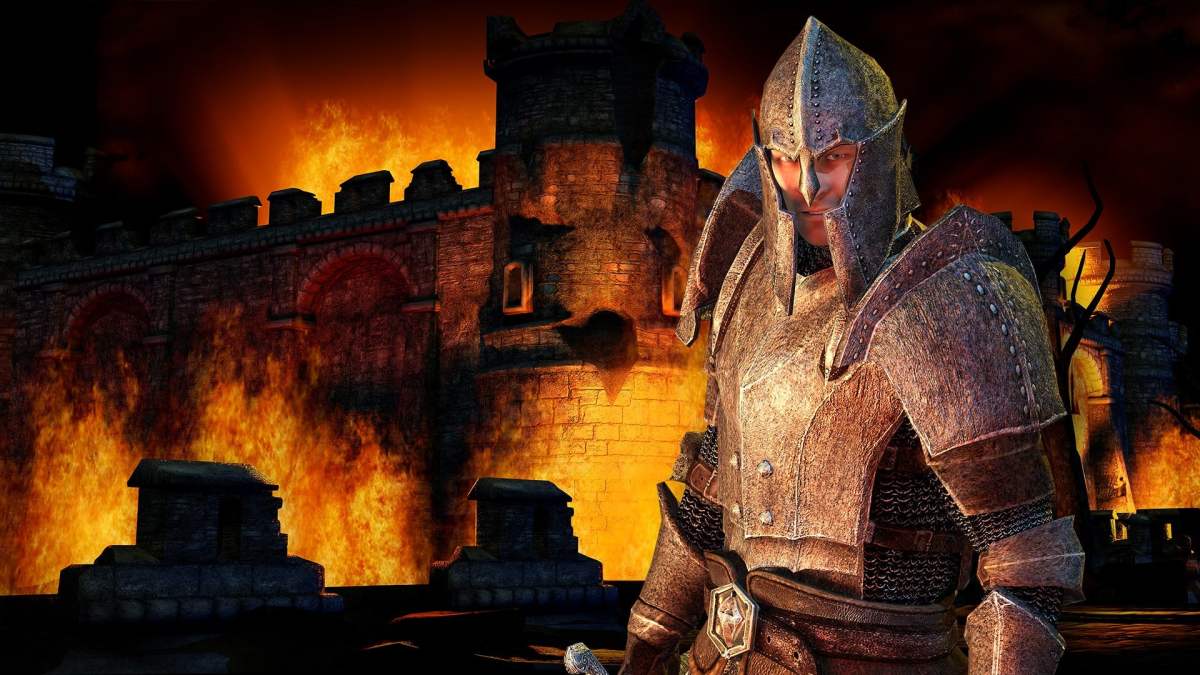Stalking is generally frowned on, but it’s one of the most entertaining activities in The Elder Scrolls IV: Oblivion, second only to joining a murderous death cult. What makes people-watching so much fun is that Oblivion’s non-player characters (NPCs), through their very existence, breathe life into the world. However, if Bethesda hadn’t reined them in a little, they could have been the game’s doom.
When Johnny T. Murdersaw is charging towards you down a narrow spaceship corridor, you’ve barely got time to think before you blast him between the eyes. But if you’re playing an open-world game, you have time to notice things that are a little off. So, you might pick up on the way pedestrians go to the end of the street and walk right back again.
Or, in the case of Morrowind, the previous Elder Scrolls title, you’ll realize that NPCs do little more than roam on rails. Unless you personally divorce his head from his shoulders, Vodunius Nuccius will always be walking back and forth near his house but never venturing inside. It’s not game-breaking, but it does undermine Morrowind’s believability. Oblivion, on the other hand, feels much more alive, and it’s all down to “Radiant AI,” a technology that gives NPCs needs (hunger, sleep, and more) and lets them make decisions about meeting those needs.
“Where other games’ NPCs require individual scripting, we can simply provide our NPCs with goals and our system allows them to think on their own and complete the task,” Bethesda’s Todd Howard explained at the time. “It allows us to have that same advanced behavior, but on a massive scale.”
“The other thing it does is give the game a more organic feel than scripting could. NPCs won’t always be standing there doing the exact same thing at the same time. The fact that your experience and what’s going on in the world around you in your game is a bit different than other people is pretty cool.”

It’s by no means flawless; you’ll hear about mudcrabs an awful lot, and it takes your average NPC three hours to eat an apple. But thanks to Radiant AI, they’re more than just mannequins. They have lives — not always interesting ones, but lives nonetheless. On some occasions, if their “responsibility” index is low enough, they’ll steal or kill.
Sure, Oblivion might have you battling a character who’s basically Satan, but 15 years after the game launched, it’s not the game’s climactic battle that’s stuck with me. What I remember the most was seeing a character sneaking along, crouched to avoid detection. My first thought was that there was a bug of some kind, one that had locked the NPC into that position; my second was that I’d inadvertently activated some sidequest.
Neither of these was true. This character had taken it upon himself to, in the open, pickpocket another character. It ended with him skewered by a guard, but watching the events unfold, I was transfixed. What chain of events had led to this tragedy? The only conclusion I can come to was that he was hungry, and lacking funds or food, he’d chosen the only option available to him (something that, years later, was confirmed by the Elder Scrolls Wiki).
That’s an extreme example of Radiant AI in action, but even Oblivion’s basic behaviors are fascinating. Just wandering around Oblivion, watching what NPCs get up to, whether it’s raking grass or going to the pub for lunch, is a joy. And if you’re feeling evil enough, it can lead to some gloriously entertaining shenanigans.

Take the poisoned apples, for example. These items can be purchased or stolen from various sources and will kill anyone who eats them stone dead. In any other game, these apples would be tied to one solitary quest; outside of that, they’d pose no danger. Not so in Oblivion, thanks to Radiant AI. Place an apple in a public place and there’s every chance someone will pick it up and, because they’re hungry, take a bite, with fatal results.
Few other RPGs have Oblivion’s organic, sandbox-style potential. In fact, Skyrim actually feels like a step backwards, not least because NPCs are inordinately interested in your life. But the startling thing about Oblivion is that the Radiant AI actually had to be dialed back. Had it been left unchecked, it could have thrown the game world into chaos. Designer Emil Pagliarulo spoke of the problem that occurred when NPCs addicted to skooma, an in-world beverage, got out of hand:
“In one Dark Brotherhood quest, you can meet up with this shady merchant who sells skooma. During testing, the NPC would be dead when the player got to him. Why? NPCs from the local skooma den were trying to get their fix, didn’t have any skooma, and were killing the merchant to get it!”
There are other tales, too, of the original, unaltered Radiant AI leading to some unexpected but extreme behavior. On one occasion, an NPC’s role was to rake leaves, but, lacking a rake, he couldn’t do his job. So he did what any disgruntled gardener would do — he murdered another NPC and took theirs.

Another story involves a guard who was hungry, so he left his post to hunt for food and the other guards followed him. At that point, seeing no guards, many of the town’s less responsible inhabitants went on a thieving spree. Granted, some of these stories should be taken with a pinch of salt, but programmer Steve Meister did confirm they’d had to specifically stop some NPCs from attacking each other.
Can you imagine an Oblivion where Radiant AI hadn’t been dumbed down? Where NPCs would attack each other for all manner of odd reasons, where you could stand in the center of a town and just watch the chaos unfold? A world where a court wizard fireballs a king to death over a loaf of bread? A world where quests are either broken or where you have to chase the quest giver down because they’re too busy looting someone’s house?
Yes, I can. I absolutely can, and it’s the world I want. It’s the world I’ve wanted ever since I heard about the glorious, bloody chaos that Radiant AI’s maxed-out version precipitated. There have been various mods created to restore Radiant AI to its former state, but they all stop short. However, it’s not just the mayhem factor that makes it enticing; fully levelled-up Radiant AI could, in theory, create a world more dynamic than any RPG to date.
So I’m issuing a plea to Bethesda: If, somewhere in your archives, you have a fully unfettered version of Oblivion, please, set it free. I can’t think of a better way to commemorate Oblivion’s 15th anniversary than by letting us experience Oblivion as never before. After all, it’s what Sheogorath would want.






Published: Mar 23, 2021 11:00 am